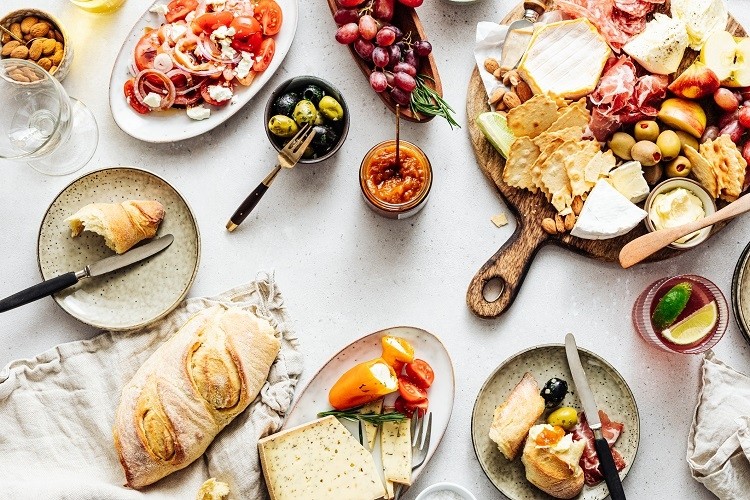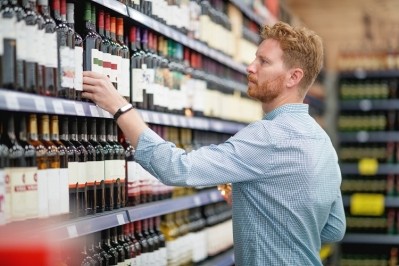Which food and drink products should benefit from Europe’s agri-food promotion policy?

The budget is set: for 2022, a total of €185.9m has been allocated to the promotion of EU agri-food products in and outside Europe.
The promotion policy will co-fund campaigns in line with the European Green Deal ambitions, supporting objectives from the Farm to Form strategy, Europe’s Beating Cancer Plan, and the EU Organic Action Plan, as well as communication on the European citizens’ initiative ‘End the cage age’.
“The promotion of European agri-food products’ quality and safety, in the EU and worldwide, is an important dimension of the Commission’s support to farmers and producers,” said Agriculture Commissioner Janusz Wojciechowski when announcing the policy budget late last year.
“Our promotion policy plays a key role in the transition towards sustainable food systems. Our aim is to increase awareness of organic farming and more sustainable agricultural practices, coupled with the promotion of fresh fruits and vegetables, essential for healthy eating and balanced diets.
“Demand for these products needs to grow if we want more producers to join the green transition.”
A wide range of bodies, from trade to producer organisations, and agri-food groups responsible for promotion activities, are eligible to apply for funding and submit their proposals.
While the Commission mulls over these applications – successful campaigns will launch in 2023 – FoodNavigator hears from stakeholders to find out what they want from the EU agri-food promotion policy.
Let’s address the ‘biggest threat’: climate change
According to the Commission, a focus of the campaigns will be to highlight the ‘high’ safety and quality standards, as well as the diversity and traditional aspects of EU agri-food products.
This includes the promotion of EU quality schemes, such as geographical indications (GIs) across the bloc.
For Joao Onofre, Director ad interim Promotion, Research & Geographical Indications at the European Commission, EU agri-food promotion policy should and must be centred around sustainability.
While referencing the very real threat of the Ukraine-Russia conflict on food affordability at a recent European Food Forum (EFF) event, co-hosted by the EP Intergroup on Wine, Spirits and Quality Foodstuffs, the director stressed that industry needs to look long-term. “Frankly, the political momentum is not at all favourable to development in policy in these areas, but somehow we nee to hope that…common sense works and that [soon] we will go back to look at our priorities.
“Because in the long-term, the Commission fundamentally bets on the Green Deal.”
The Commission is ‘convinced’ that the biggest threat to the European agricultural sector is not Russia’s invasion of Ukraine, but climate change.
“This is going to bring fundamental issues for quality products, for the wine sector, for all other production… We need to address that now, rather than in five years.”
For Onofre, a promotion policy that puts environmental sustainability at the forefront is a step in the right direction. In so doing, it can ‘move’ the promotion policy from something that addresses competitiveness, boosts consumption, and enhances export markets, into a policy that is aimed at ‘favouring products that are more sustainable’.
“This is exactly what we want to do in GIs…”
What do consumers want?
Sustainability is also front-of-mind for consumer organisation Safety Food Advocacy Europe (SAFE), as is food safety.
This is because, as Deputy Secretary General Luigi Tozzo explained at this week’s event, consumers want sustainable and safe food.
A 2020 Eurobarometer survey, based on 27,000 interviews conducted in all Member States, suggests as such. When asked what would make a food product ‘sustainable’, 41% of respondents said it should be ‘nutritious and healthy’, with 32% responding it should have been produced with ‘little or no pesticides’.
Consumer demand for sustainable and safe food is also indicated by growing interest in organic agri-food products, suggested SAFE’s deputy secretary general. In Italy, for example, 23m families consume organic products – representing a 10m increase since 2012.
The value of Italian organic exports to foreign markets is also on the up. Currently valued at €2.9bn, data from research analyst Nomisma expects it to increase 5% in just one year.
So which products should the Commission promote via its EU agri-food promotion policy?
SAFE suggested the policy should be selective, only promoting agri-food products that promote a sustainable way of farming, such as organic, permaculture, and no- or low-tilling farming.
The consumer organisation is convinced industry can meet consumers’ needs, and that traditional products – such as those with geographical indications – can also work to become more sustainable.
‘If it’s not broken, don’t fix it’
While SAFE would prefer the EU agri-food promotion policy take a more exclusive approach, supporting only those products that respond to consumer demands for sustainable products, industry trade association FoodDrinkEurope (FDE) does not agree.
The policy, Silvia Lofrese, Senior Manager, Public Affairs at FDE, stressed, should remain an inclusive policy. “We do not believe that discriminating certain product categories…is the right way forward. We would prefer to see a promotion policy that remains inclusive.”
This would mean that all products, no matter their nutritional content, would be eligible to receive promotional support.
“This would certainly help…all sectors in the broader industry to recover from the recent crisis that we’ve had.”
FDE is also wary of focus on environmental sustainability being centred around one or two agricultural production methods. The trade group has observed increased attention from the Commission on organic production, for example.
“Organic production is not the only sustainable practice in farming and food processing, so fair support to all sustainable practices will be highly desired from our side,” we were told.
Further, sustainability doesn’t exclusively mean environmental sustainability, Lofrese stressed. “It’s also social and economic, and the European food and drink industry has a great impact from a social and economic point of view.”
FDE has set out a ‘wish list’ for the promotion policy, with sustainability – referring to environmental, social, and economic – in first place. It should also contribute to the objectives of the Green Deal and the Farm to Fork strategy, all the while ‘meeting the reality’ of the market.
“It should meet the demands, and not try to force the demand,” we were told.
Next up, the budget should remain ‘large enough’. In 2020, the budget stood at around €200m per year, which FDE believes should be the ‘starting point’.
And finally, a ‘strong’ promotional policy is one that can further encourage Europe to be a ‘global leader’ when it comes to sustainability.
“When something works, it needs to be reinforced. There is no need to distort it. This is pretty much where we see the revision of the promotion policy.”





